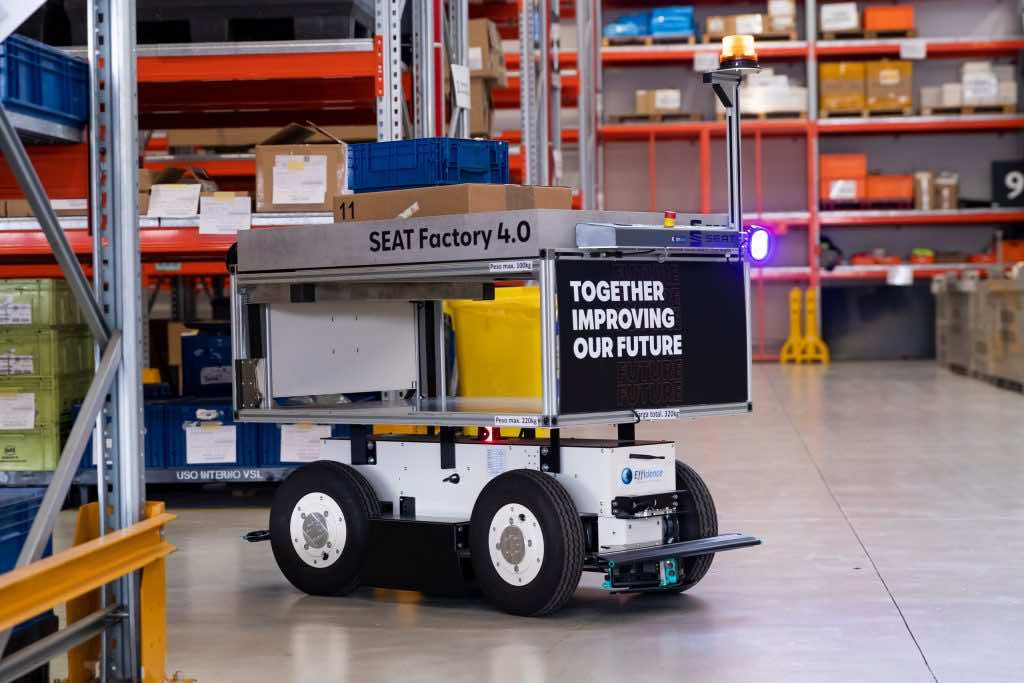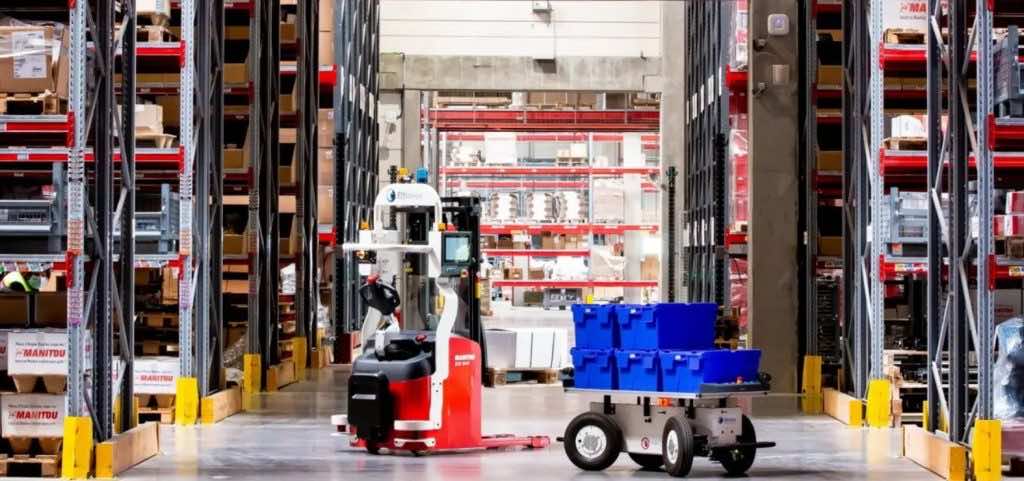When we think of the modern automobile industry, one of the first things that often comes to our mind is car factories filled with robots, where huge robotic arms are busy welding, assembling, painting, and maneuvering stuff around. Most of the tasks are done by the robots to build modern cars. However, some are still done by human workers that are now to be taken over by robots.
A recent example of robots assuming human roles is from the Spanish car manufacturer SEAT, who recently employed a new worker. Their new employee, EffiBOT, is an autonomous, collaborative mobile robot that will serve in its Martorell factory.
The small car-like autonomous robot was developed in France and can perform a cluster of tasks without the need for human supervision. The robot packing wonders of AI keeps a watch around and could follow workers to provide worthy assistance, making performing tasks easy for human workers. It could lift upto 250 kg and could pull up to 500 kg of cargo.

To say that it is a competition for the bigger automated guided vehicles won’t be wrong simply because it could do a lot more. Another key factor that makes EffiBOT a tough competition for automated guided vehicles is its ability to function properly on its own. It includes effective monitoring of its environment, mapping routes, and avoiding obstacles. Shining its abilities is the fact that it doesn’t only learn specific patterns to work; instead, it could work around a multitude of tasks on its own through smart learning.

The bot is easy to operate, its operator would simply tap on its touch screen, and it would follow without requiring any complex controls. This ability of the EffiBOT would mostly come in handy for assisting in carrying heavy loads. Unlike human workers, EffiBOT would be eager to give you its assistance in bearing heavy cargo.
Herbert Steiner, SEAT’s Vice-President for Production and Logistics, said: “Autonomous mobile robots place us at the forefront of innovation in the automotive sector. They’re also a clear example of how robots can collaborate with employees to make their work easier. Their incorporation contributes to driving Industry 4.0 and making us more efficient, flexible, agile, and competitive.”


